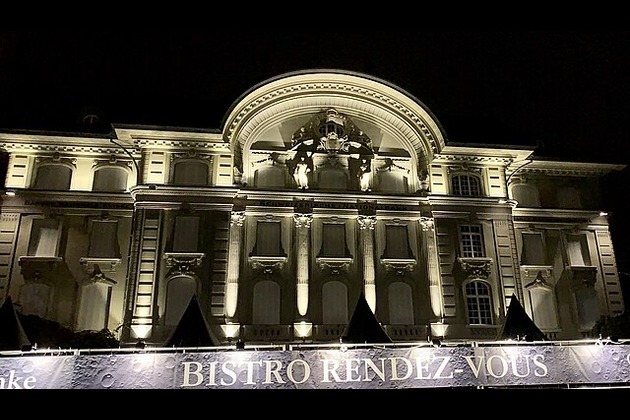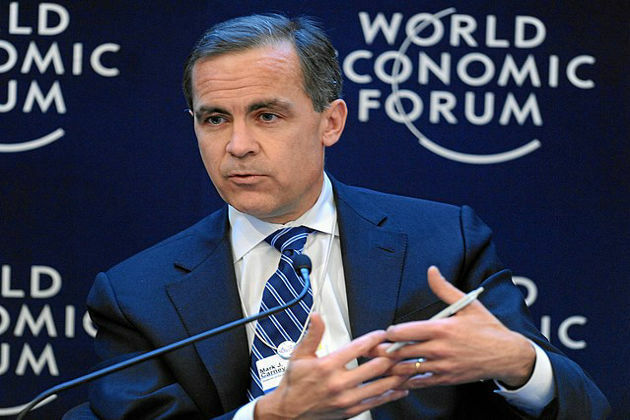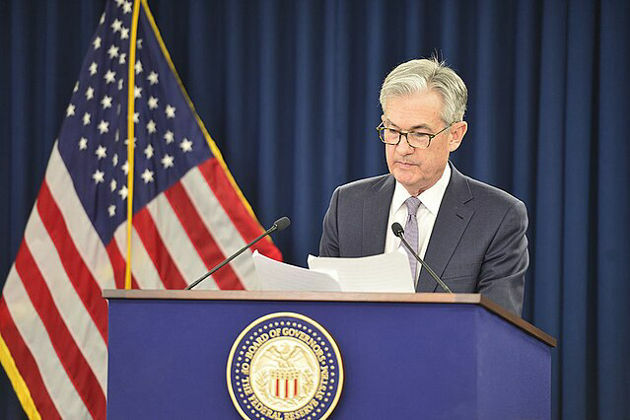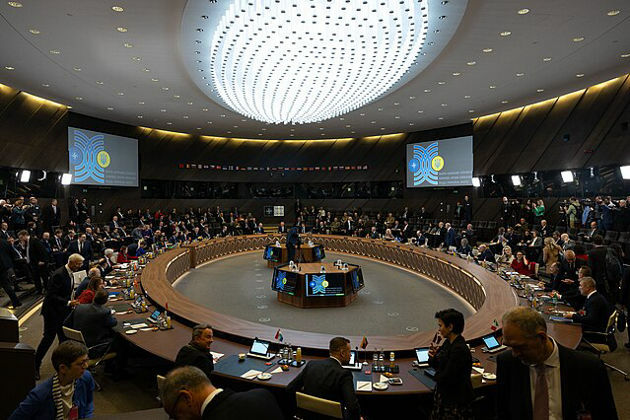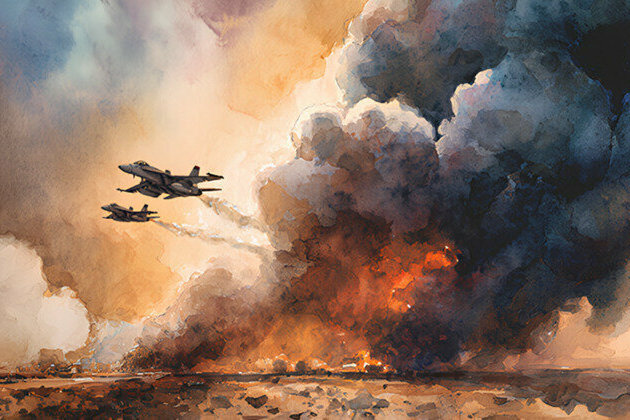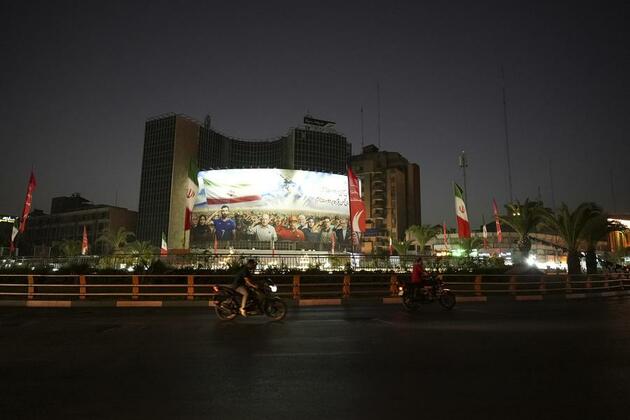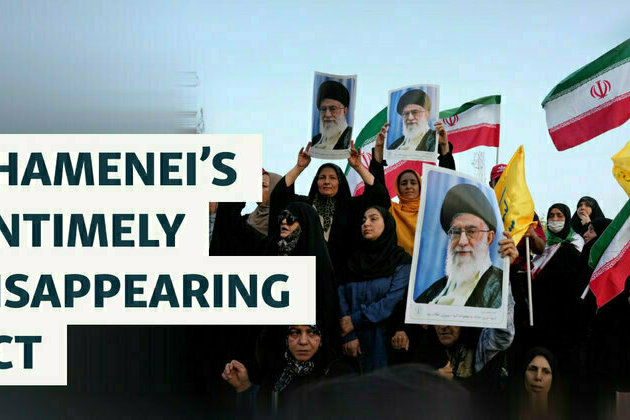From bunker bombs to Nobel dreams: Trumps war for peace
RT.com
27 Jun 2025, 16:16 GMT+10
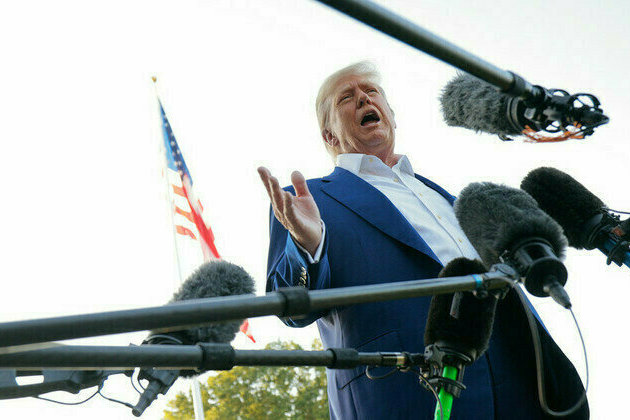
Choosing a military solution over a negotiated one in dealing with Iran is is a throwback to US unilateralism and regime change policies
The US seems to have learned no lessons from the post-Cold War phase of its unilateralism and regime-change policies in the Middle East. Instead of a new peaceful and stable order being established under Washington's tutelage, it ended in the collapse of countries - not merely regimes - chaos, civil war, and the rise of Islamic extremism and terrorism.
It is not clear what legitimate US core interests were served by its military interventions to re-order the political forces in the region.
If the objective was also to remove regimes that were a threat to Israel's security and erode Russian influence in the region, some success may have been achieved in Iraq and Syria, though in a divided Libya Moscow seems to have gained ground.
Giving Israel a freer hand in Lebanon and Syria, and a virtual carte blanche in Gaza and in the West Bank too, may have in the short term given it an upper hand in security terms but longer term the answer to Israel's security dilemmas may not lie in asserting its regional hegemony with the backing of the US.
Israel has long viewed its core security challenge as emanating from a nuclear-armed Iran. It has worked hard over the years to mobilize US and European opinion against Iran's nuclear program. That this program has been subject to stringent International Atomic Energy Agency (IAEA) safeguards has not reduced the virulence of Israel's campaign against it. Israel has for years raised the specter of Iran becoming nuclear within months or even weeks even though no proof is produced to support this belief. The IAEA has not backed Israel's allegations.
These Israeli claims have resonated in the pro-Israel lobbies in the US to the point that President Donald Trump in his first term repudiated the nuclear agreement signed between Iran and the five permanent members of the UN Security Council (China, France, Russia, the UK and US) plus Germany. Under this agreement, Iran had accepted severe and even humiliating curbs on its nuclear program as a sovereign country, which included highly intrusive monitoring by the IAEA.
In his second term, Trump sought to negotiate a new, much tougher, nuclear agreement with Iran that would deny it even some rights it had under the first one. A couple of rounds of talks took place, and the date for another round had been slated. These talks were being held under the shadow of timelines and intimidating ultimatums by Trump. It is not improbable that the US was engaged in a show of negotiations while actually preparing for an aerial strike against Iran.
With Hamas and Hezbollah decimated and regime change having been carried out in Syria, Iran's hand was greatly weakened vis-à-vis Israel. Prime Minister Netanyahu evidently calculated that this was the most opportune moment to do the unthinkable - attack Iran militarily and open the door to US military intervention in support of Israel.
In other words, for Israel the objective would be to prevent any possible negotiated agreement between the US and Iran, and for Trump to seize the opportunity to eliminate Iran's nuclear capability by force, in particular its underground facilities with the use of B2s armed with bunker-busting bombs.
Peace Prize path
That Trump has chosen a military solution over a negotiated one is a throwback to US unilateralism and regime-change policies. The US attack on Iran is a gross violation of international law. It infringes the UN Charter. The US had no mandate from the UN Security Council to act against Iran. There is no provision in the Non-Proliferation Treaty (NPT) that would allow the recognized nuclear powers to eliminate a suspected nuclear program of a non-nuclear state in violation of the Treaty. The US attack also cannot be justified as a pre-emptive one as Iran was not threatening to attack the US. The rhetoric of a rules-based international order has been exposed for what it is.
The irony is that Trump's election rhetoric was against the US getting involved in wars abroad, which he believed had drained America's resources. His MAGA base wanted the US to focus on domestic priorities. Trump projected himself as against wars as such, as someone who would work to end conflicts. His position on the Ukraine conflict reflected this.
His unfounded claim that he brokered a ceasefire between India and Pakistan, as well as his offer to mediate between the two countries on Kashmir, is part of how he projects himself as a peacemaker. He now claims to have brokered an agreement between Rwanda and Congo and between Egypt and Ethiopia, among others. His efforts should, as he says, entitle him to four or five Nobel Peace Prizes.
Pakistan tried to capitalize on Trump's obsession with a Nobel Prize by officially nominating him for one after his unprecedented invitation to a foreign military chief (the Pakistani field marshal) to lunch with him at the White House.
This sycophantic ploy recoiled on Pakistan when virtually the next day Trump attacked Iran militarily. Trump believes that now summoning Israel and Iran to a ceasefire shows his commitment to peace. Unsurprisingly, his supporters in the US Congress have nominated him for the Nobel Prize.
While Netanyahu publicly speaking of killing Ali Khamenei, Iran's spiritual leader, is one thing, Trump visualizing the possibility of assassinating him at an opportune moment on his social media account is egregious. Such talk of political assassination are being normalized in diplomatic discourse. Trump has also not ruled out regime change in Iran, potentially causing chaos in a country of over 90 million.
A pause in a long-term conflict
A ceasefire between Israel and Iran, even if it holds, is simply a pause. The underlying issues remain unresolved. Iran needs to give up its rhetoric that Israel has no right to exist. It is most unlikely that Iran will give up its nuclear program and its rights under the NPT. Iran has decided to end the monitoring of its program by the IAEA. Iran has accused the agency head of leaking information about its nuclear scientists to the US and Israelis and facilitating their assassination. Meanwhile, the whereabouts of Iran's highly enriched uranium are not known.
There are also some doubts about the extent of damage caused to Iranian nuclear sites by the US bombers, and therefore the assessment is that Iran's program could be revived quickly enough. Russian Foreign Minister Sergey Lavrov has questioned the integrity of IAEA Chief Rafael Grossi for pressuring Iran to allow renewed access to its nuclear facilities.
Meanwhile, the US attack has exposed the inability of Moscow and Beijing to give protection to Iran during the conflict. Russia signed a comprehensive strategic partnership agreement with Iran in January 2025. Iran is a member of BRICS and the Shanghai Cooperation Organization (SCO), two organizations in which both Russia and China play dominant roles.
Putin has explained that Russia had offered to help build up Iran's air defenses but Tehran declined as it wanted to rely on its own capacities. The Iranian foreign minister went to Moscow and met Russian President Vladimir Putin, but whatever help is now given to Iran will be diplomatic - as well as potential assistance in building up its air defenses if Iran has learned the right lessons about its vulnerabilities.
China, which signed a 25-year strategic accord with Iran and is the biggest buyer of Iranian oil, has stood aloof from the conflict in practical terms although, unlike in the case of Russia, its rhetoric against Israel is harsh. Russia itself is involved in a major conflict and would want to avoid alienating Trump. China too has major stakes in managing its tense ties with the US.
Iran has suffered and so has Israel. The story is not yet over.
(RT.com)
 Share
Share
 Tweet
Tweet
 Share
Share
 Flip
Flip
 Email
Email
Watch latest videos
Subscribe and Follow
Get a daily dose of Greek Herald news through our daily email, its complimentary and keeps you fully up to date with world and business news as well.
News RELEASES
Publish news of your business, community or sports group, personnel appointments, major event and more by submitting a news release to Greek Herald.
More InformationInternational Business
SectionBird flu plan in the works as USDA weighs export, vaccine risks
CHICAGO, Illinois: For the first time in history, U.S. officials are considering a coordinated plan to vaccinate poultry against bird...
Farmers exploit loophole in Amazon soy deal to clear rainforest
SANTAREM, Brazil: As Brazil cements its position as the world's top soy exporter, a new wave of deforestation is spreading across the...
Europe eases rates as Fed holds and Trump threatens tariffs
ZURICH, Switzerland: A wave of central banks across Europe surprised markets last week by lowering interest rates, responding to easing...
Carney sets 30-day deadline for US trade deal
OTTAWA, Canada: Canada may boost its counter-tariffs on steel and aluminum imported from the U.S. if a comprehensive trade agreement...
Federal Reserve chief weighs next move as economic outlook wavers
WASHINGTON, D.C.: The U.S. economy is performing reasonably well, but Federal Reserve Chair Jerome Powell faces a difficult decision...
Formula 1 sponsorship revenue over $2B in 2024, closing on NFL
(Photo credit: Stephanie Lecocq/Reuters via Imagn Images) Formula 1 is hot on the tail of the big dog of professional sports marketing,...
Mediterranean
SectionAlliance eyes major military buildup to counter Russia
THE HAGUE, Netherlands: NATO is pressing ahead with a sweeping new defense spending target, calling on all 32 member nations to commit...
(SP)ROMANIA-BUCHAREST-UEFA EUROPEAN UNDER-19 CHAMPIONSHIP
(250627) -- BUCHAREST, June 27, 2025 (Xinhua) -- The Netherlands' Kees Smit holds the trophies of Player of the Tournament (L) and...
Forget Middle East: This region could be next to see a major crisis
Russia must watch the fallout of Israels wars especially in its backyard The war in the Middle East poses a growing threat to Central...
From bunker bombs to Nobel dreams: Trumps war for peace
Choosing a military solution over a negotiated one in dealing with Iran is is a throwback to US unilateralism and regime change policies...
Iran says no agreement reached to resume talks with U.S.
TEHRAN/WASHINGTON, June 27 (Xinhua) -- Iranian Foreign Minister Seyed Abbas Araghchi said on Thursday that no arrangement or commitment...
Khameneis Untimely Disappearing Act
Welcome back to The Farda Briefing, an RFE/RL newsletter that tracks the key issues in Iran and explains why they matter. I'm RFE/RL...



